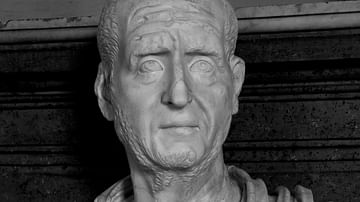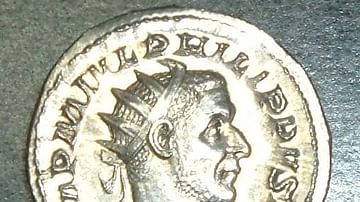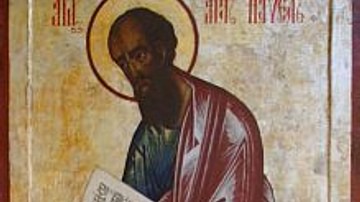Search Definitions
Browse Content (p. 260)

Definition
Decius
Decius was Roman emperor from 249 to 251 CE. In 249 CE Roman emperor Philip the Arab sent senator Decius to be the governor of the troubled provinces of Moesia and Pannonia. Roman legions under the ineffective command of the governor there...

Definition
Diocletian
Diocletian was Roman emperor from 284 to 305 CE. After the defeat and death of the Roman emperor Philip the Arab in 249 CE, the empire endured over three decades of ineffective rulers. The glory days of Augustus, Vespasian, and Trajan were...

Definition
Mars
Mars was the Roman god of war and second only to Jupiter in the Roman pantheon. Although most of the myths involving Mars were borrowed from the Greek god of war Ares, Mars did have some uniquely Roman features. Mars is considered more level-headed...

Definition
Philip the Arab
Philip the Arab ruled as emperor of the Roman Empire briefly from 244 CE to 249 CE. In 244 CE Roman emperor Gordian III responded to an uprising in the eastern provinces instigated by the Persian king Shapur. Under the superb leadership of...

Definition
Minerva
Minerva was the Roman goddess of wisdom, medicine, commerce, handicrafts, poetry, the arts in general, and later, war. In many ways similar to the Greek goddess Athena, she had important temples in Rome and was patron of the Quinquatras festival...

Definition
Aztec Art
The Aztec culture, centred at the capital of Tenochtitlan, dominated most of Mesoamerica in the 15th-16th centuries. With military conquest and trade expansion, the art of the Aztecs also spread, helping the Aztec civilization achieve a cultural...

Definition
Rosetta Stone
The Rosetta Stone is an incomplete grey and pink granodiorite stela dating from 196 BCE which presents a priestly decree concerning King Ptolemy V of Egypt. The text is in three different versions: Hieroglyphic, Demotic and Greek, a fact...

Definition
Tarascan Civilization
The Tarascan civilization (aka the Purépecha, after their language) dominated western Mexico and built an empire that would bring it into direct conflict with that other great Mesoamerican civilization of the Post-classic period, the Aztecs...

Definition
Paul the Apostle
Paul was a follower of Jesus Christ who famously converted to Christianity on the road to Damascus after persecuting the very followers of the community that he joined. However, as we will see, Paul is better described as one of the founders...

Definition
Coatlicue
Coatlicue (pron. Co-at-li-cu-e) or 'Serpent Skirt' was a major deity in the Aztec pantheon and regarded as the earth-mother goddess. Coatlicue is represented as an old woman to symbolise the antiquity of earth worship. Coatlicue was the patron...